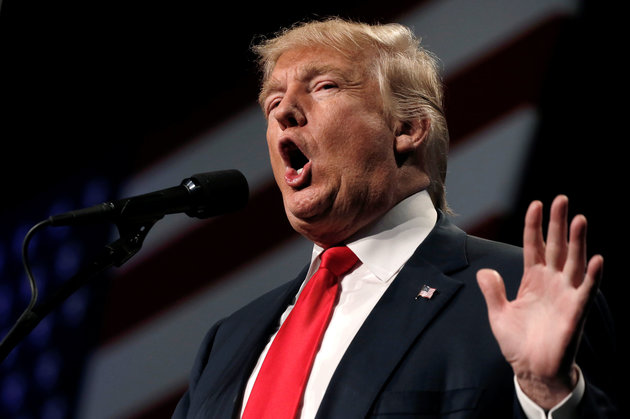US Senator introduces bill promoting internet freedom in the face of Chinese censorship
09/17/2020 / By Franz Walker

Colorado Sen. Cory Gardner has introduced legislation that aims to promote internet freedom while looking to counter the increased internet censorship being imposed by the Chinese Communist Party.
Named the Free the Internet around the Globe to Hack Tyranny and Censorship Act (FIGHT Censorship Act), the bill seeks to establish a clear U.S. policy on internet freedom. As part of the bill, the Department of Commerce’s National Telecommunications and Information Administration (NTIA) would be required to communicate this U.S. policy around the world.
“An international internet freedom policy will go hand-in-hand with our efforts to promote democracy and human rights around the world,” wrote Gardner in a press release from his office dated Sept. 15.
“And it will continue to hold bad actors like the Chinese Communist Party accountable for censorship and violations of basic human freedoms,” he added.
China continues to suppress internet freedom
In the press release, Gardner’s office notes that China has, for the fourth year in a row, been listed as the “worst abuser of internet freedom” in a report by Freedom House. Following the aftermath of the Wuhan coronavirus outbreak, numerous and well-documented instances of China suppressing the free flow of critical and medically important information about the pandemic surfaced. (Related: Chinese authorities hid the fact that medical staff in coronavirus-hit city were infected.)
Most famously, China silenced eight doctors after they started posting on Chinese social media about a new form of pneumonia that would later turn out to be COVID-19 in late December 2019.
The report touched upon the “unprecedented extremes” of censorship as Beijing enhanced its controls in advance of last year’s 30th anniversary of the Tiananmen Square massacre alongside the widespread anti-government protests in Hong Kong. The most recent example of this is the trial of activist Xu Kun after authorities found that he had retweeted over 1,000 tweets in support of the Hong Kong protests. Xu was accused of “slandering China’s political system and the Chinese Communist Party, insulting Chinese leaders, and distorting major domestic news events.”
Beyond that, authorities continue to shutter individual accounts on the hugely popular social media platform WeChat for any sort of “deviant” behavior. This includes minor infections, such as commenting on environmental disasters, on top of more “serious” ones like commenting on the pandemic, protests and human rights abuses.
“The campaign cut individuals off from a multifaceted tool that has become essential to everyday life in China, used for purposes ranging from transportation to banking,” wrote the report. “This blunt penalty has also narrowed avenues for digital mobilization and further silenced online activism.”
All this is on top of the fact that China’s “Great Firewall” blocks its citizens from accessing many international platforms and sites such as Google, Facebook and Twitter, forcing people to use officially vetted channels where they can be more easily monitored.
Bill to establish internet freedom task force, fund anti-censorship tech
Should Gardner’s bill be enacted, the Secretary of Commerce would need to establish an Internet Freedom Task Force that would submit a report on the state of global internet freedom to Congress. The task force would be comprised of members from the NTIA, the U.S. Patent and Trademark Office, the National Institute of Standards and Technology, and the International Trade Administration.
Meanwhile, the Secretary of State would need to annually designate countries that “do not provide sufficient internet freedom to their residents,” such as “unfavorable domestic laws that restrict the free flow of information.” In addition, the state secretary would also administer a $25 million grant program to promote internet freedom policies worldwide, including promoting anti-censorship technology such as virtual private networks (VPN) that are used by many in China to bypass state censorship.
More directly targeted at China is another fund, also to be administered by the state secretary, called the “Stop the CCP Initiative Fund.” According to the bill, this $20 million fund would be used to support developing technologies – including anti-censorship and secure communications technologies – to counter Beijing’s internet censorship.
Follow Censorship.news for more on China’s draconian internet policies and how it continues to silence those who speak out.
Sources include:
Tagged Under: banned, Beijing, Bill of Rights, Censored, Censorship, China, communism, Congress, coronavirus, free speech, freedom, global internet freedom, government, internet, Internet freedom, Liberty, protests, speech police, state censorship, thought police
RECENT NEWS & ARTICLES
COPYRIGHT © 2018 GLOBALISM.NEWS
All content posted on this site is protected under Free Speech. Globalism.news is not responsible for content written by contributing authors. The information on this site is provided for educational and entertainment purposes only. It is not intended as a substitute for professional advice of any kind. Globalism.news assumes no responsibility for the use or misuse of this material. All trademarks, registered trademarks and service marks mentioned on this site are the property of their respective owners.




















